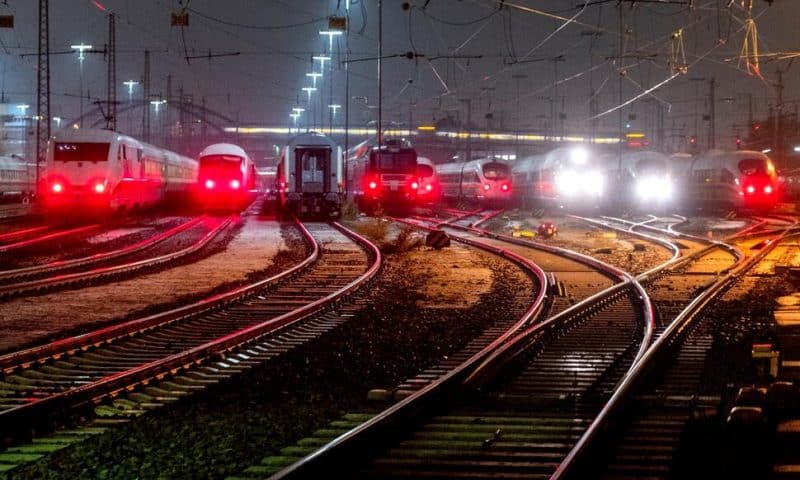Travelers in Germany are facing delays and disruptions as a union representing Germany’s train drivers conducts a 24-hour strike
BERLIN — Travelers in Germany faced delays and disruptions Friday after a union representing train drivers launched a 24-hour strike over contract negotiations with the main national railway operator.
The strike by the GDL union began at 10 p.m. local time Thursday for passenger services and at 6 p.m. for freight trains.
German railway company Deutsche Bahn said approximately 20% of its long-distance trains would still run on Friday but urged customers to delay unnecessary travel when possible. It warned that trains would be extremely full on Saturday after the strike ends.
A major snowstorm snarled transit in Munich and parts of southern Germany earlier in the week.
Negotiations between GDL and Deutsche Bahn broke down after only two rounds of talks. GDL is seeking a pay increase, a one-time payment to help counter inflation and the reduction of weekly working hours from 38 to 35. Deutsche Bahn has said it made an offer that amounts to an 11% raise.
Limited “warning strikes” are a common tactic in German pay negotiations. A 20-hour strike on Nov. 16, when Deutsche Bahn also ran a reduced long-distance schedule, preceded Friday’s walkout.
GDL’s strength among drivers and some other railway personnel varies regionally, and some regional services run by private operators were not affected by the dispute.
The strike was expected to be GDL’s last for the year, but the union may soon expand its action. GDL Chairman Claus Weselsky told German radio station Bayerischer Rundfunk that strikes in early 2024 could be “longer and more intense,” if no agreement is reached.
“We will crack them,” Weselsky said, referring to the Deutsche Bahn executives as he attended a demonstration in Potsdam on Friday, according to German news agency dpa.

